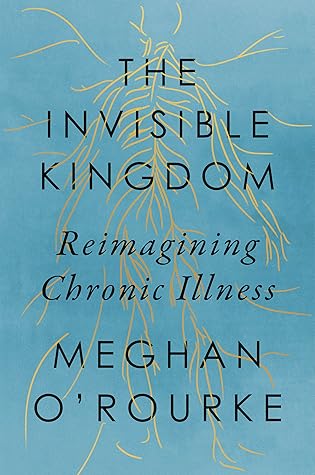More on this book
Community
Kindle Notes & Highlights
quest narrative, a story in which the patient has been able to synthesize her experience into a meaning of some kind—although it’s usually not the meaning (recovery) that she thought she’d find when she first got sick.
Then, too, the United States does not treat health care as a human right or sick people with dignity. How can you achieve grace if you are losing the job on which you and your children rely? Or when you feel you are materially failing those who love you?
I experienced diminishment: the tunnel I never wanted to enter, the culvert that terrified me, the threat I thought I couldn’t survive.
I must acknowledge that not all stories are quests. For some people being ill remains so awful and so taxing that it brings nothing other than chaos. Perhaps coming to grasp this fact is the wisdom that illness brings with it.
If illness could be said to bring growth with it, well, then, it wasn’t exactly the thing that she or he feared—it wasn’t a tragedy, it wasn’t a kind of prison. Instead, it was dynamic, like running a marathon or doing a wellness cleanse: a challenge, punctuated by suffering, but ultimately worth it.
in an era when so many of us feel busy unto death, when the culture seems to be increasingly shallow, the questions I kept getting about illness betrayed—could it be?—a kind of yearning for a forced spiritual encounter, a slowing down and reckoning that we don’t find in our lives otherwise.
I recognized that what my interlocutors wanted was for me to bring a spiritual flavor and framework to illness, to be to dise...
This highlight has been truncated due to consecutive passage length restrictions.
There is a reason, as the historian Jennifer Ratner-Rosenhagen has put it, that “wisdom-talk is big business in America”; in the absence of a coherent spiritual tradition, a debased popular-wisdom culture springs up in its place. Think kabbalah strings, meditation apps, positive thinking, or the trendy embrace of autoimmunity as a manifestation of the perils of modern life, for which, of course, a pricey turmeric latte powder is prescribed. (A powder I myself bought and still use.)
The patient’s identity is thwarted, silenced, distorted in a culture that does not recognize itself in its sick members. One of the most important discoveries I made in the process of being ill is that solitary striving, my American habit of self-focus, was in some fundamental way a degradation of the most powerful aspects of our lives, which now seem to me to be our interconnectedness and need of others.
a sense of how little control we have over the course of our lives and an understanding that the deepest meanings come from our contact with that portal between control and submission. This was not necessarily an expansive vision, but in its accuracy, it was, for the moment, soothing.
poet Audre Lorde put it, of living with breast cancer, “My visions of a future I can create have been honed by the lessons of my limitations.”
It moves in spiral time around the linear life I sometimes think I live.
It rather resembles a glint in the earth, a bit of mica on the rock that catches the sun just so. I’m always trying to turn to that sun, to be adrift in the snow-shine, to find the aspect that stuns me into a reverence I know I can’t control. I will not say that this is the gift of illness, because I do not think illness is a gift. It is not anything so tangible and fixed. But this may be illness’s reality, its weather, the way swaying underfoot is a quality of sea travel one only knows in full by stepping back, once more, on firm land.


